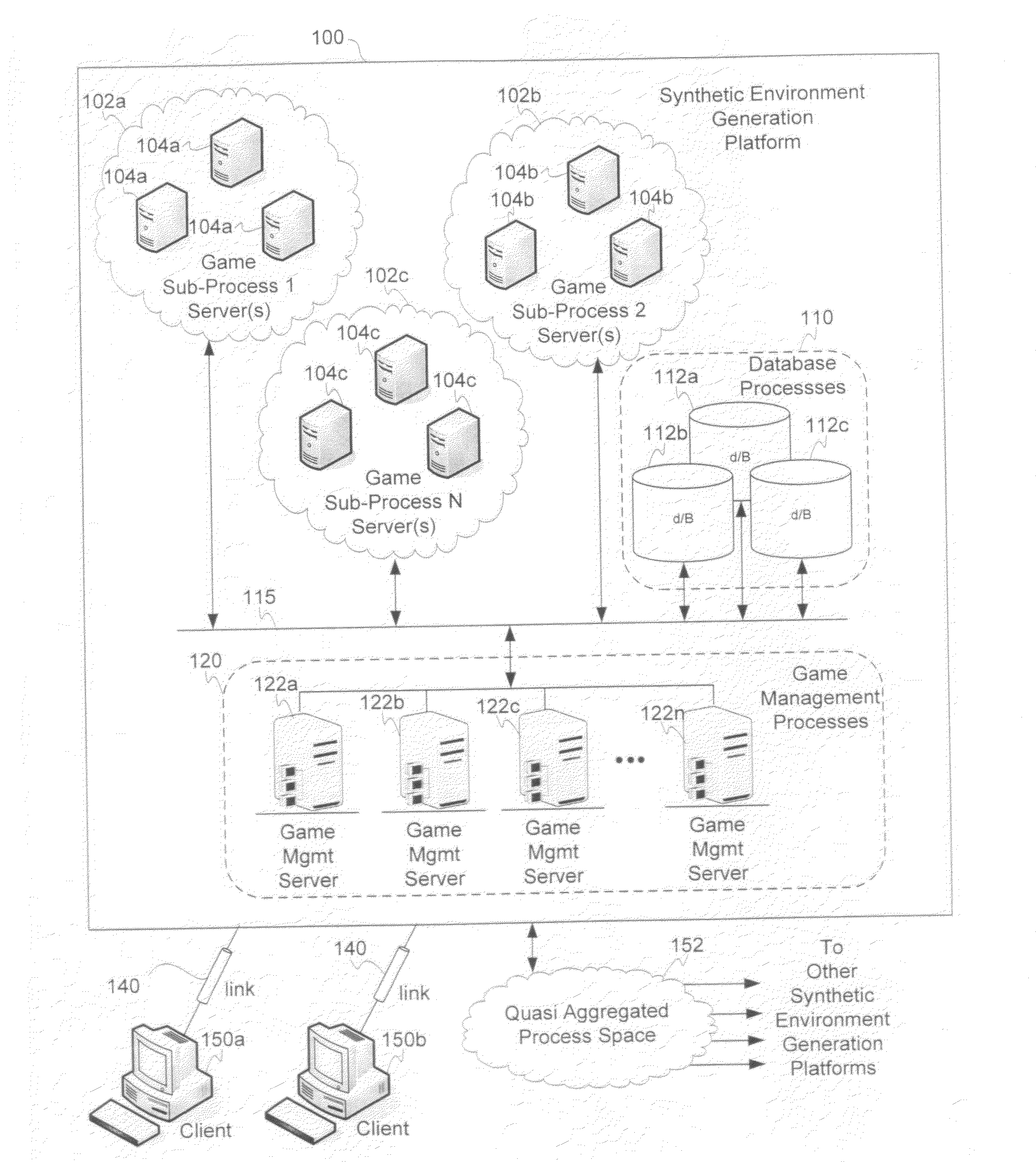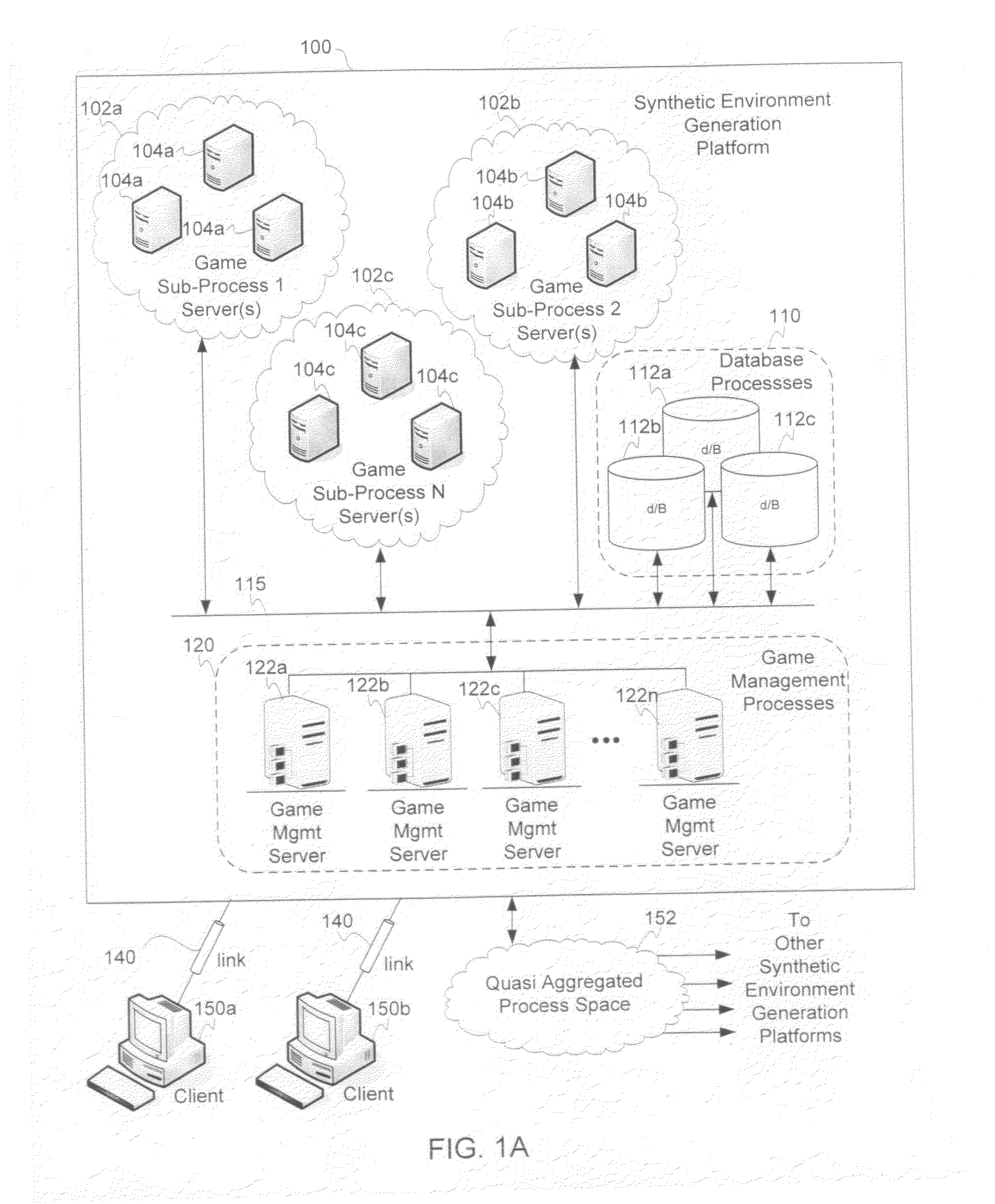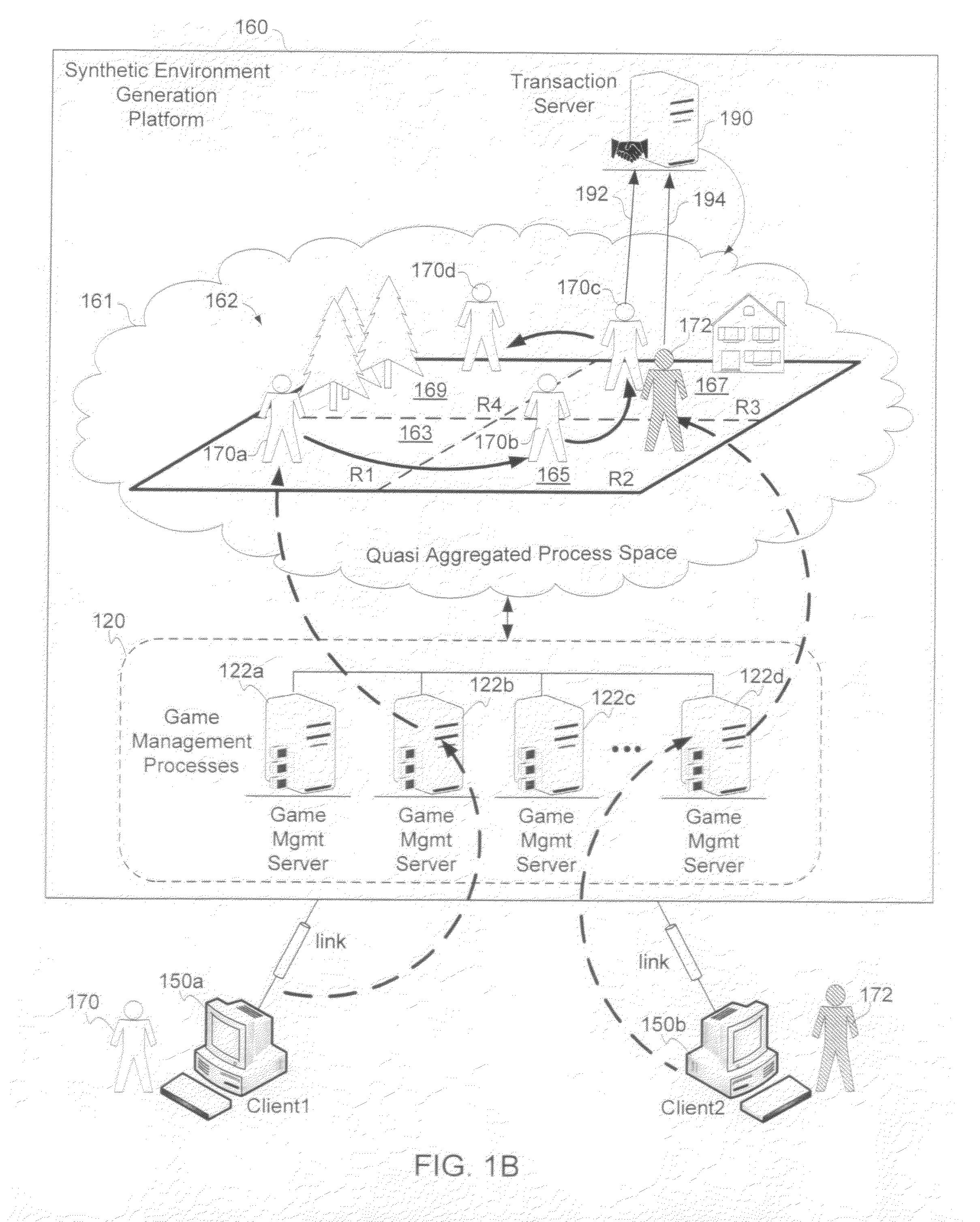Distributed network architecture for introducing dynamic content into a synthetic environment
a network architecture and dynamic content technology, applied in indoor games, sports equipment, instruments, etc., can solve the problems of limiting the development and production of new or modified virtual worlds, limiting generating virtual worlds that further impede the development and production of virtual worlds, so as to facilitate the generation of synthetic environments
- Summary
- Abstract
- Description
- Claims
- Application Information
AI Technical Summary
Benefits of technology
Problems solved by technology
Method used
Image
Examples
Embodiment Construction
[0037]FIG. 1A depicts a system for generating synthetic environments in accordance with at least one embodiment of the invention. One example of such a system is a synthetic environment generation platform 100, which include nodes (and node processes) that are networked together to generate a synthetic environment with which clients 150 interact. Synthetic environment generation platform 100 represents the server-side structure and / or functionality in a client-server network architecture, and clients 150 represent the client-side structure and / or functionality. The nodes include game subprocess servers 104, databases 112 and game management servers 122, all of which are coupled together by a network 115, to respectively implement game subprocesses 102, databases processes 110, and game management processes 120. Game subprocesses 102 can include more or fewer than subprocesses 102a, 102b and 102c. As shown, game subprocess servers 104 are arranged in a distributed arrangement relativ...
PUM
 Login to View More
Login to View More Abstract
Description
Claims
Application Information
 Login to View More
Login to View More - R&D
- Intellectual Property
- Life Sciences
- Materials
- Tech Scout
- Unparalleled Data Quality
- Higher Quality Content
- 60% Fewer Hallucinations
Browse by: Latest US Patents, China's latest patents, Technical Efficacy Thesaurus, Application Domain, Technology Topic, Popular Technical Reports.
© 2025 PatSnap. All rights reserved.Legal|Privacy policy|Modern Slavery Act Transparency Statement|Sitemap|About US| Contact US: help@patsnap.com



